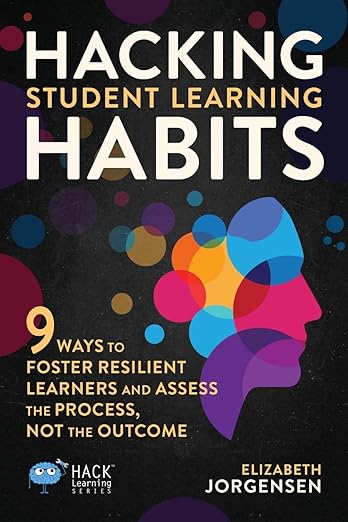How Process-Based Learning Transforms Students Into Motivated, Resilient Learners
Jun 13, 2025
In today’s classrooms, many students are stuck in a cycle of anxiety and performance-driven thinking. They ask, “What did I get on the test?” instead of “What did I learn from this experience?” This mindset, shaped by decades of outcome-based grading, can derail curiosity, suppress creativity, and leave students more concerned with point totals than progress.
But what if we flipped the script?
Across grade levels and subjects, innovative educators are doing just that—shifting their focus from final grades to student growth, from outcome to process. The result? Classrooms that are alive with discovery, resilience, and engagement.
Welcome to the power of process-based assessment.
The Problem with Outcome-Based Grading
Traditional grading systems emphasize the result of learning rather than the learning itself. These systems often:
-
Prioritize correct answers over critical thinking
-
Punish mistakes instead of encouraging revision
-
Create high-stakes pressure that leads to anxiety
-
Encourage short-term memorization over long-term understanding
While grades offer a snapshot of performance, they rarely capture the full picture of a student’s effort, creativity, or progress.
This system doesn’t align with the way humans truly learn. Growth is rarely linear—and the path to mastery is often filled with mistakes, experimentation, and incremental improvement.
The Process-Based Solution
Process-based assessment shifts the focus from what students got to how they got there. It values the journey just as much as the destination. Instead of reducing learning to a score, it:
-
Emphasizes measurable, student-centered goals
-
Encourages self-reflection and iterative improvement
-
Builds habits of inquiry, perseverance, and higher-order thinking
-
Reduces grade anxiety and increases intrinsic motivation
In a process-driven classroom, assessments are not endpoints. They are tools for reflection, feedback, and meaningful learning.
Strategies for Implementing Process-Based Learning
Here’s how educators can begin to build a classroom culture rooted in process and progress:
1. Start with Small, Measurable Goals
Encourage students to set short-term objectives they can work toward over time. Whether it’s mastering a writing technique or improving problem-solving strategies, focusing on one step at a time helps make growth visible.
2. Track Upward Trends in Non-Linear Learning
Learning isn’t a straight line. Students may struggle before they succeed—and that’s okay. Charting progress over time, even when it includes dips and setbacks, builds resilience and normalizes the learning curve.
3. Deemphasize Final Grades
When possible, delay assigning grades until students have had multiple opportunities to revise and reflect. Use formative feedback, peer assessment, and self-evaluation to help them improve before any final mark is given.
4. Use Reflection as Assessment
Ask students questions like:
-
What strategy did you use?
-
What was the hardest part and how did you overcome it?
-
What would you do differently next time?
These reflections deepen metacognition and shift focus from grades to growth.
5. Celebrate Learning Moments—Not Just Results
Highlight effort, revision, and persistence. A student who took three drafts to get a concept right should be celebrated as much as the one who nailed it on the first try.
6. Create Fun in the Process
Gamify goal setting. Turn revisions into challenges. Allow students to track their own progress using journals, charts, or goal boards. When students enjoy the process, engagement soars.
The Long-Term Payoff: Lifelong Learning Habits
By implementing process-based learning, you’re not just helping students do better on one test—you’re shaping how they approach all learning. These habits extend far beyond the classroom:
-
Confidence in facing challenges
-
Willingness to take academic risks
-
Patience with themselves and others
-
Focus on mastery, not perfection
These are the traits of empowered, independent learners. And they begin when educators shift the conversation from “What did you get?” to “How did you grow?”
Final Thoughts
In a world obsessed with scores, shifting to a process-driven mindset may feel radical. But it’s what students truly need—not just to succeed in school, but to thrive in life.
When we design assessments that reflect real learning, we don’t just measure knowledge—we build it.






